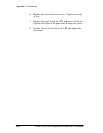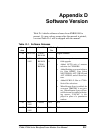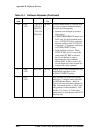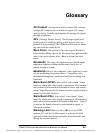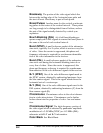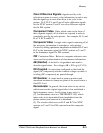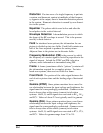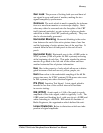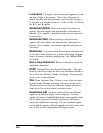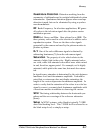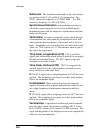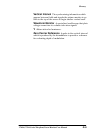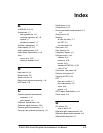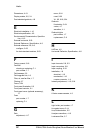
Glossary
1740A/1750A Series Waveform/Vector Monitor User Manual
G-5
Gen Lock The process of locking both sync and burst of
one signal to sync and burst of another, making the two
signals completely synchronous.
Graticule The scale which is used to quantify the informa-
tion on a waveform monitor or vectorscope display. Grati-
cules may either be screened onto the faceplate of the CRT
itself (internal graticule), or onto a piece of glass or plastic
which fits in front of the CRT (external graticule). They can
also be electronically generated.
Horizontal Blanking Horizontal blanking is the entire
time between the end of the active picture time of one line
and the beginning of active picture time of the next line. It
extends from the start of front porch to the end of back
porch.
Horizontal Sync Horizontal sync is the --40 IRE pulse in
NTSC systems (--300 mV pulse for PAL systems) occurring
at the beginning of each line. This pulse signals the picture
monitor to go back to the left side of the screen and trace
another horizontal line of picture information.
Hue Hue is the property of color which allows us to distin-
guish between colors such as red, yellow, purple, etc.
Hum Hum refers to the undesirable coupling of the 60 Hz
power sine wave for NTSC systems (50 Hz power sine wave
in PAL systems) into other electrical signals.
ITS (PAL) Insertion Test Signal. A test signal which is
inserted in one line of the vertical interval to facilitate
in--service testing.
IRE (NTSC) A unit equal to 1/140 of the peak--to--peak
amplitude of the video signal, which is typically 1 volt. The
0 IRE point is at blanking level, with sync tip at --40 IRE and
white extending to +100 IRE. IRE stands for Institute of
Radio Engineers, the organization which defined the unit.
Linear Distortion Refers to distortions which are inde-
pendent of signal amplitude.



